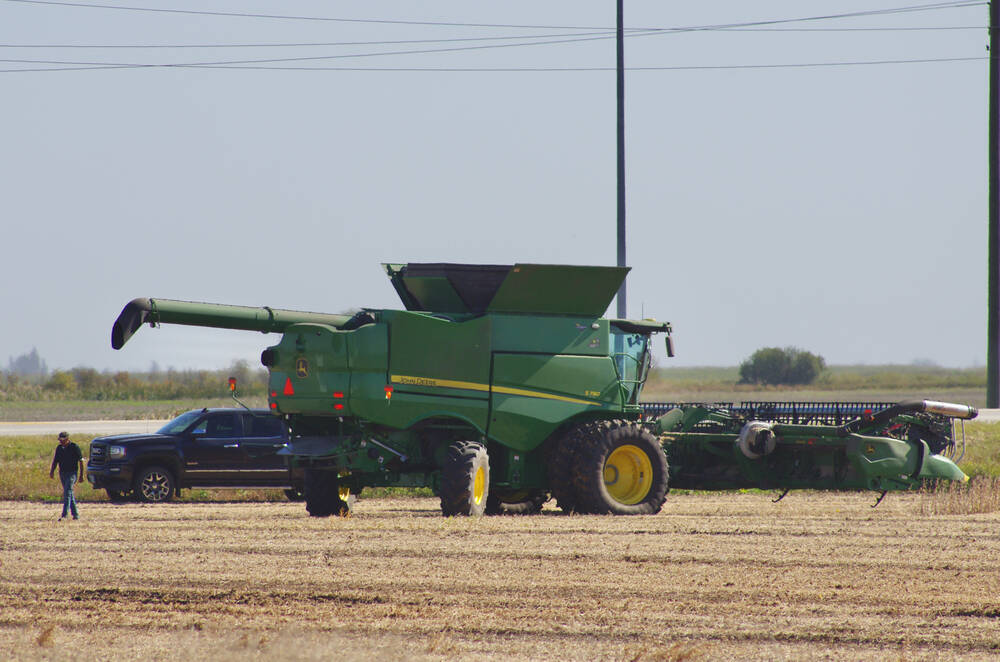A lack of clarity around United States President Donald Trump’s proposed tariffs may be worse for farm planning than a guarantee of bad news, business analysts say.
Trump has been threatening 25 per cent tariffs on Canadian goods and services for months, and now has set a Feb. 4 implimentation date. In late January, Trump’s commerce secretary nominee Howard Lutnick, however, suggested that regardless how tariffs come into play, Canada might be hearing about further trade action in spring.
According to Dr. Larry Martin, instructor at Strategic Agribusiness Management and expert in agri-food marketing, having no clear news about such an important topic can be devastating for farmers.
Read Also

AAFC organic research program cut
Canada’s organic sector says the loss of a federal organic research program at Swift Current, Sask., will set the industry back.
“There’s nothing worse than uncertainty,” Martin said. “It’s a major cost to the system, because people don’t know what to do.”
Martin pointed to China’s recent anti-dumping probe into Canadian canola as a similar example of market volatility causing panic.
“What was the immediate effect on the futures market? It went down a whole bunch, real quick,” he said.
The price did eventually come back up, but “in the meantime, everybody’s scrambling around being uncertain, trying to figure out what to do, and all it did was create chaos, cost and mental health issues.”
Martin said one way Canada could try to avoid financial devastation in the ag sector is to look beyond the U.S. market.
“If you’re in a committed value chain, I think the other thing to think about is, is there somewhere else we can start moving our product to away from the U.S., where we can actually, you know, maintain some degree of price stability?”
He said shifting focus away from the U.S. and towards Europe could give Canadian commodities “an advantage in that third-party market.”
Unfortunately, Martin said there isn’t much producers can do on their farms to financially prepare for the tariff threat. But they can take collective action to signal to Americans how much the tariffs could end up hurting them as well.
“I’ve been hearing all the stories about ‘Why is this going to be a bad thing for Canada?’ Well, from Mr. Trump’s perspective, that’s exactly what he wants to have happen,” Martin said. “What good does it do to say, ‘Oh, your policy is going to negatively affect us?’ Why don’t we talk about what the negative impacts are going to be on them?”
Terry Betker, a farm management consultant and principal of Backswath Management said he had “no magic answers” on financial advice for farmers facing down tariffs, but suggested they “determine what they think the worst-case scenario would be for them in their business and then determine what the impact of that will be on their financial situation.”
“I’m really curious as to what the farmer’s balance sheet looks like to understand how much liquidity, how much cash flow, surplus cash flow they have, and then, in that worst-case scenario, determine [what] the impact of that potential tariffs would be on them.
“Plan from that basis,” Betker continued. “If it never gets to the worst case, that’s good, but at least they know … what could occur and how they would plan in that scenario.”
J.P. Gervais, chief economist with Farm Credit Canada said Canadian producers may need to prepare for lower market prices.
“People think tariffs, their mind goes to exports, right?” said Gervais. “But [a] tariff is just a cost of doing business.”
“If you bring the cost up of doing business, if you take a seller on the Canadian side, a buyer on the U.S. side, you’re telling the buyer, ‘You’re going to pay 25 per cent more for this product that we sell in Canada.’ The buyer looks around and says, ‘Well, I can buy this product for cheaper.’”
“Prices kind of adjust,” Gervais continued, “and likely we would see Canadian prices come down as a result of tariffs.”
He said commodities with the most U.S. market exposure would be hit the hardest.
Martin, meanwhile, thinks the situation could incite change in Canadian agri-food policy.
“The major part of Canadian agricultural policy is, and has been for 40 years, the business risk management stuff, including supply management,” he said. “Maybe this is the chance to actually have a rethink about what the basis of Canadian agriculture policy is.”
— With files from Gord Gilmour
















